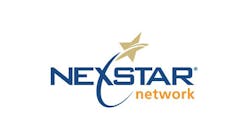Latest from Marketing
Sponsored
Fraud costs the nation 5% of GDP annually. It likely costs plumbing contractors more. Most plumbing company owners simply refuse to talk about it until they learn how prevalent it is. No company is too small to fall victim to fraud, which means every business owner should take preventative measures. In this two-part series, 28 best practices you can take to limit your exposure are shared. Here are the first 15 best practices.
1. Be Ethical
You are the boss. Everyone is watching you. Model ethical behavior and you increase the odds your employees will act likewise. By contrast, if you cut corners it sends a loud message that it is okay for your employees to cut corners. For example, if you run personal expenses through the company to avoid taxes you are cheating the government making it easy for some employees to rationalize cheating the company.
2. Screen Before Hiring
Never skip background checks before hiring. Many contractors run criminal background checks and have employees take personality profile tests. This is not enough.
Run credit checks, which reveal whether someone is under financial stress. People under financial stress are more likely to commit fraud.
Take it a step farther and conduct a social media check. See what the prospective employee has posted on social media sites before hiring.
3. Drug Test
Drug testing is a given. Do it before hiring. Do it randomly after hiring. Aside from other problems and liabilities, drug use is another indicator of potential fraud.
4. Separate Responsibility
A fundamental tenet is sound management is separation of responsibility. Create checks and balances. For example, unless you are the one who prepares and signs checks, the person who signs checks should be different from the person who prepares them.
5. Use a P.O. System
Put in place a purchase order system and make sure suppliers understand that you will not pay for anything purchased without a P.O. or payment at the time of the purchase. Separate responsibility for the purchase orders. Whoever issues them should not pay them.
6. Limit Credit Card Access
Many business owners like to use their personal or company credit cards for purchases to take advantage of cash back, airline miles, or other perks. Obviously, limit access to credit cards and check the statements. For fuel purchases, give employees a fuel card. As a rule, avoid issuing company credit cards to employees. It is better to have them use their own cards and turn in expense reports.
7. Create an Approved Vendor List
One of the ways fraud is committed is through the creation of phony vendors or adding a vendor owned by an employee or relative of an employee. Create an approved vendor list and review it annually. Payments to entities not on the approved vendor list may well be legitimate, but they merit increased scrutiny.
8. Sweep Cash
When checking accounts exceed three months of operating expenses, sweep the excess cash into a separate account. This is a good practice for asset protection, as well as reducing the potential for fraud. It is also a good idea to sweep the cash to an interest bearing account.
9. Control the Mail
It is good practice to establish a post office box for company mail. Limit access to the P.O. box and make sure bank statements, payments, invoices, and government mail gets sent to the P.O. box. If this is not feasible, have them sent to your home address. Pick up the mail yourself. Open it yourself.
10. Make Bank Deposits Personally
If there are bank deposits to make, make them yourself. This is especially true for cash deposits. Aside from fraud prevention, this gives you the opportunity to establish personal relationships with the people running and working for the bank, which is always a good thing.
11. Lock Up Checks
Check printer stock should be locked up. Limit access to the check writing function of your software to one person, yourself, and a potential back-up.
12. Use Positive Pay
Some banks offer a positive pay feature where checks must be separately approved online before they can be cashed. This feature is highly recommended, though it can result in embarrassing explanations when you forget to approve the checks online and they are not honored because of it.
13. Investigate Missing Numbers
Look into missing or out of sequence check or purchase order numbers. While this might be a simple transposition mistake, it is generally a red-hot indicator of potential fraud.
14. Lock Up Petty Cash
There are times when petty cash is necessary and convenient. Access to petty cash should be limited and the cash itself should be kept in a separate lockbox. Plus, the lock should be used.
15. Take Frequent Inventory
No one likes to take inventory, but it is necessary. Because taking inventory uncovers shortages, it prevents fraud.
Contracting is hard enough. Don’t make it harder than it needs to be. Join the Service Roundtable and take advantage of a world of resources designed specifically for service contractors in plumbing, heating, cooling, electric, and remodeling. Learn more at www.ServiceRoundtable.com or call 877/262-3341 for a look behind the paywall.
Matt Michel | Chief Executive Officer
Matt Michel is CEO of the Service Roundtable (ServiceRoundtable.com). The Service Roundtable is an organization founded to help contractors improve their sales, marketing, operations, and profitability. The Service Nation Alliance is a part of this overall organization.


